LiveDesign for Materials Science
Your complete digital materials design lab

Your complete digital materials design lab
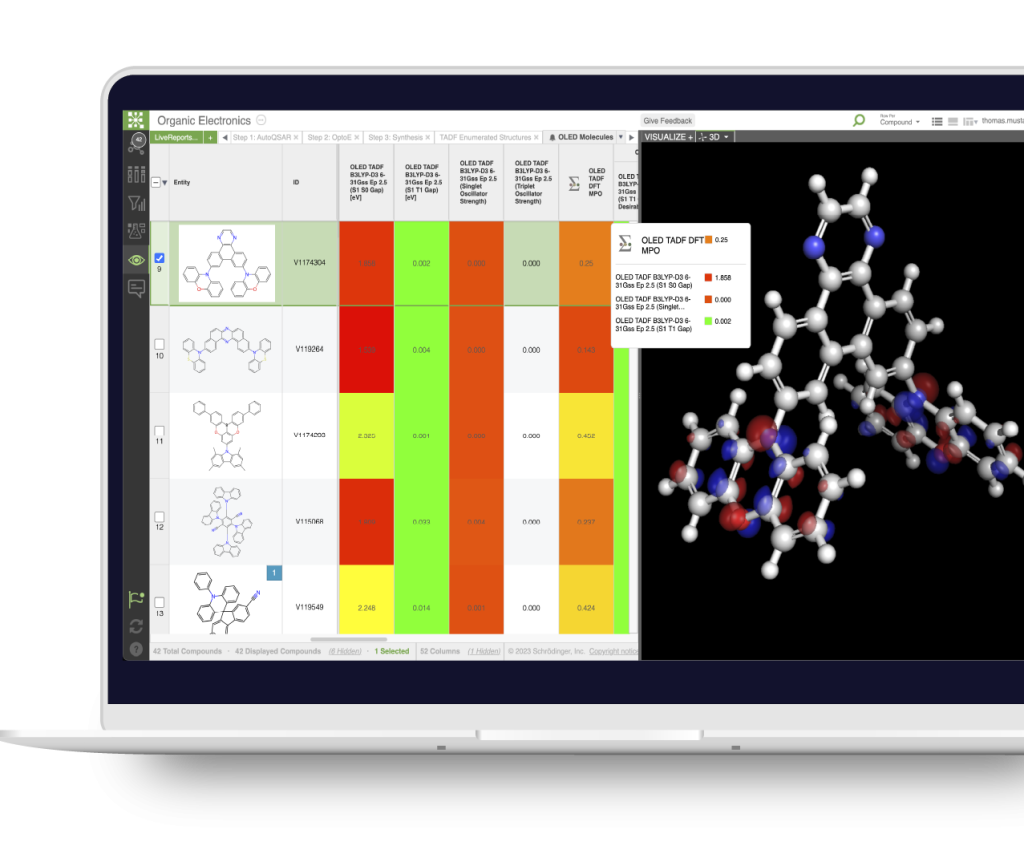
Democratize your digital design process for new materials, formulations, and chemical processes by harnessing the power of physics-based modeling, advanced cheminformatics, chemistry-informed machine learning, virtual design and analysis technologies, and centralized access to project data – all from a single interface.
Break data silos and gain real-time access to all project data — virtual and experimental — in a single centralized platform
Empower creativity and capture your best ideas with powerful predictive modeling workflows at your fingertips
Crowdsource ideas and interactively revise design strategies with your colleagues – anytime, anywhere
Intuitive, user-friendly tools to import compounds from files, run computational models, and view 3D results. Search for experimental data, add custom formulas, and flag interesting compounds for follow-up.
Sophisticated, expert tools to set up and modify complex scientific simulations and enable everyone on the team to run the simulations on imported or sketched materials. Computational results automatically appear side-by-side with other data of the same material.
Customized and focused insights into data with comprehensive, easy-to-use data analysis tools, such as multi-parameter optimization (MPO), multi-dimensional plots, tile view, and form view. Machine learning technology embedded on the platform speeds up material design cycles.

Customize LiveDesign for various materials applications and project areas
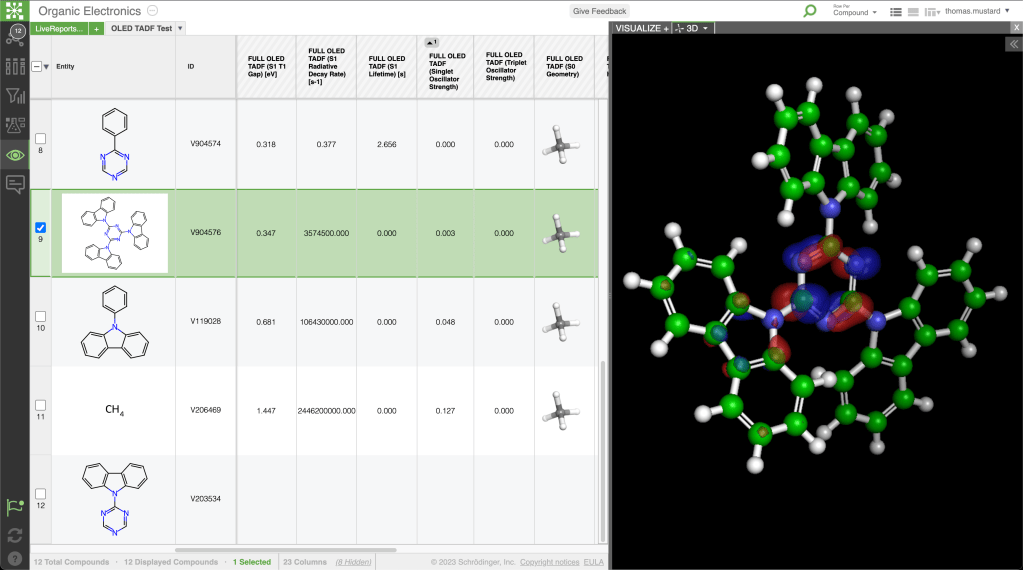
Automate and streamline sophisticated molecular and bulk simulations and analysis to predict important optoelectronic properties, while assessing the key performance of novel electronic materials based on both physics-based and data-driven methods
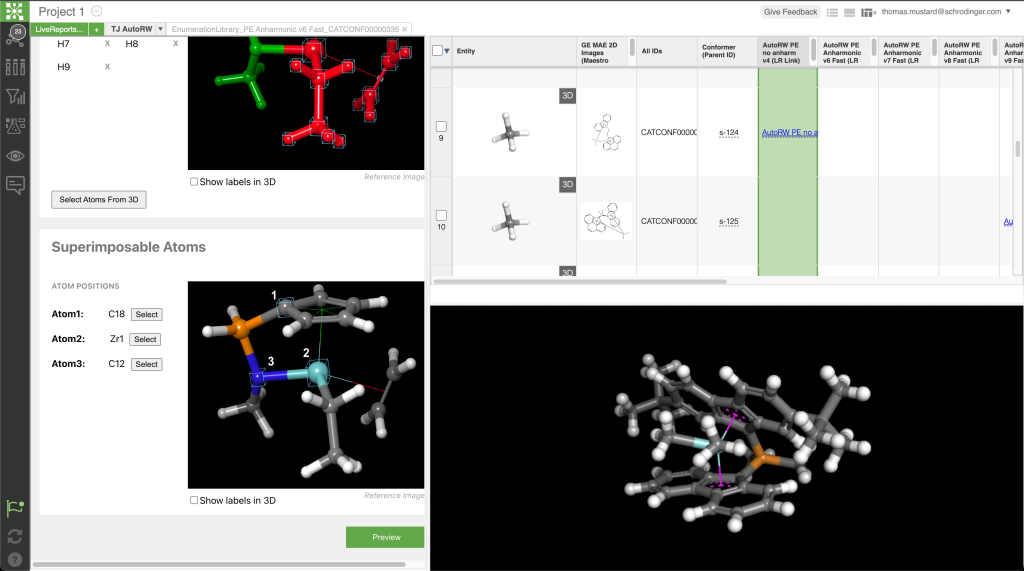
Efficient, highly-automated solutions for computational design of catalytic and non-catalytic reactivity leveraging the combination of quantum mechanics, molecular dynamics, and machine learning
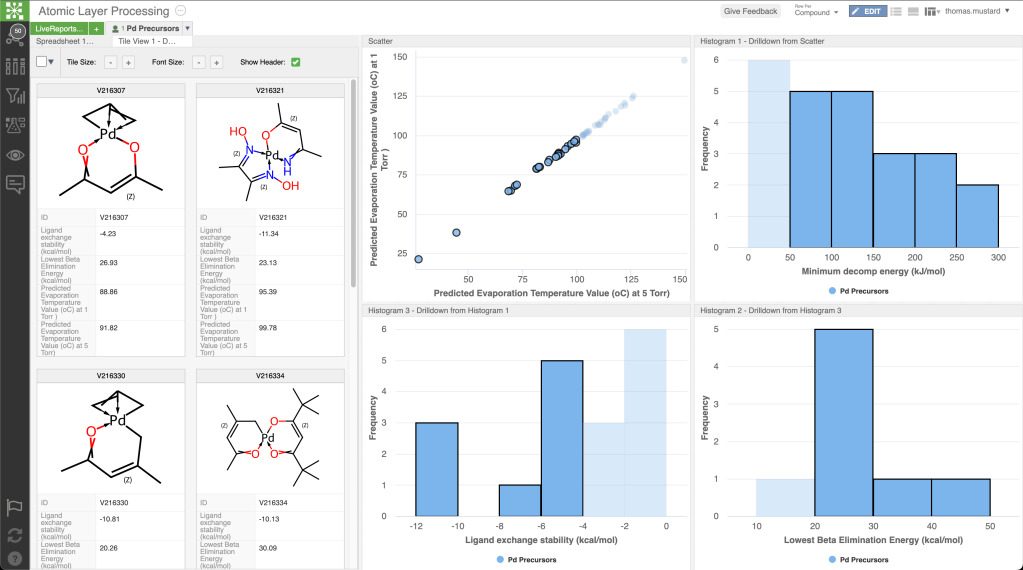
Apply machine learning technology to experimental and simulated data to find out how properties of chemicals, process conditions, and integration schemes all contribute to the final performance of devices in areas such as logic, memory, sensing, or energy conversion
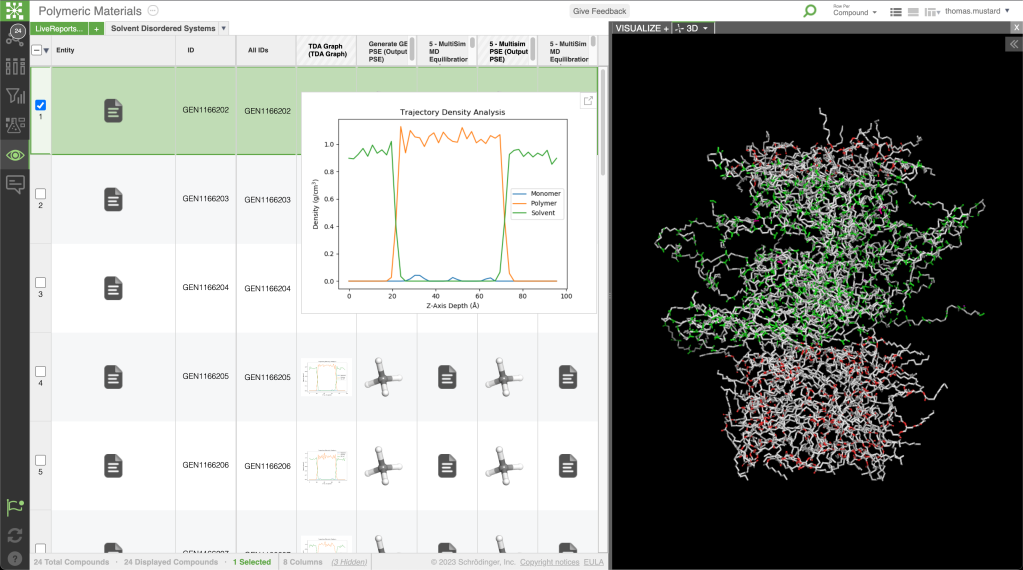
Design polymer monomers and formulations with embedded polymer sketching and integration of predictive models including machine learning and physics-based simulations
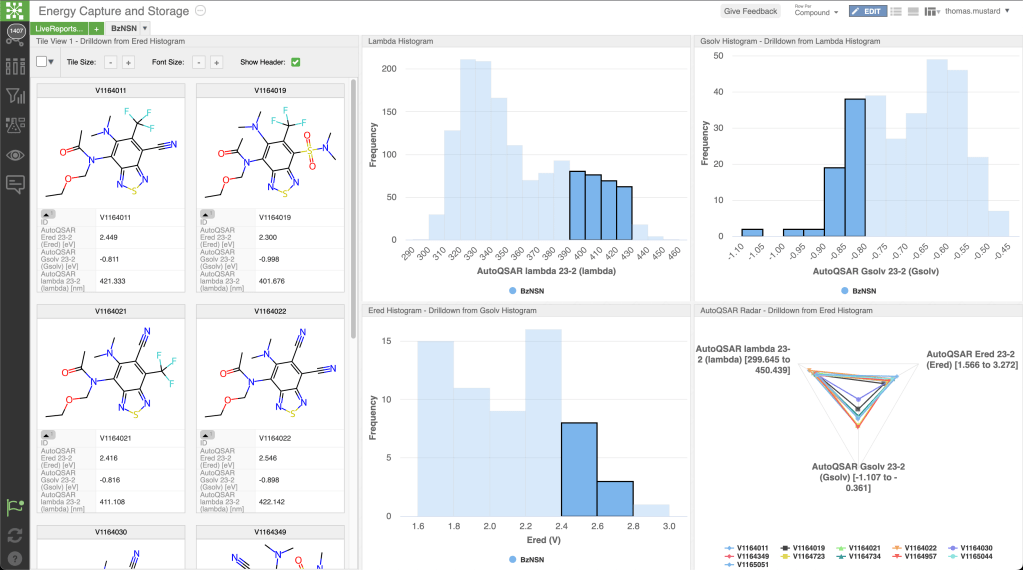
Optimize electrolyte formulations, electrode structure, and cell-level performance simultaneously using advanced informatics, hierarchical machine-learning, and multi-scale physics-based simulations
Level up your skill set with hands-on, online molecular modeling courses. These self-paced courses cover a range of scientific topics and include access to Schrödinger software and support.
Learn how to deploy the technology and best practices of Schrödinger software for your project success. Find training resources, tutorials, quick start guides, videos, and more.